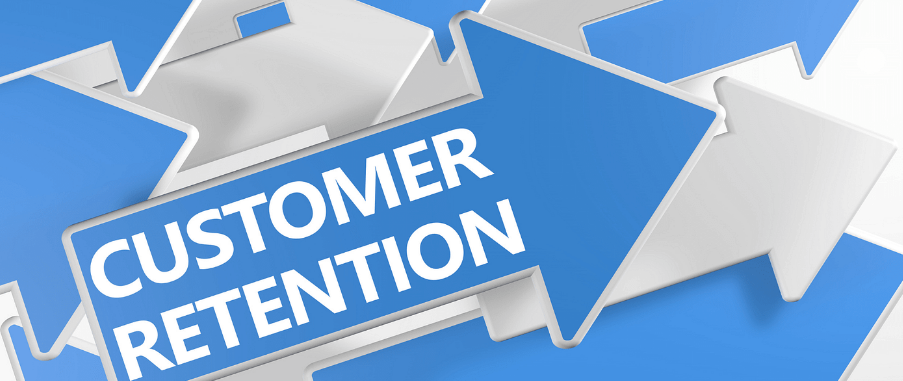How CRM Software Enhances Customer Retention Customer retention is crucial for the sustained growth of any business. Loyal customers not only provide consistent revenue but also act as brand ambassadors, attracting new customers. In today’s competitive market, businesses need effective tools to enhance customer retention, and CRM (Customer Relationship Management) software stands out as a powerful solution.
Understanding CRM Software
Definition of CRM Software
CRM software is a technology used to manage a company’s interactions with current and potential customers. It helps businesses streamline processes, build customer relationships, and improve profitability.
Key Features of CRM Software
- Customer Data Management: Centralizes customer information.
- Interaction Tracking: Monitors all customer interactions.
- Automated Follow-Ups: Schedules reminders and tasks.
- Customer Segmentation: Groups customers for targeted marketing.
Benefits of CRM Software in Customer Retention

Improved Customer Service
CRM software enables businesses to respond to customer inquiries swiftly, providing comprehensive support by accessing detailed customer histories.
Personalized Customer Experiences
By leveraging data analytics, CRM software allows businesses to offer personalized experiences, predict customer needs, and create tailored marketing campaigns.
Efficient Communication Channels
With integrated communication tools, CRM software ensures that all customer interactions are streamlined across various channels, offering real-time updates and consistent experiences.
Key Features of CRM Software for Retention
Customer Data Management
A centralized database ensures data accuracy, integrity, and easy access, making it simpler to understand and cater to customer needs.
Interaction Tracking
CRM software tracks every interaction a customer has with the business, allowing for the analysis of customer behavior and the identification of pain points.
Automated Follow-Ups
Automated follow-ups through scheduled reminders, drip email campaigns, and task automation ensure that customers are continually engaged.
Customer Segmentation
Identifying customer segments allows businesses to create targeted marketing strategies and personalized offers, enhancing customer satisfaction and loyalty.
Improved Customer Service
Faster Response Times
With CRM software, businesses can respond to customer inquiries faster, improving customer satisfaction and loyalty.
Comprehensive Customer Histories
Access to detailed customer histories allows support teams to provide informed assistance, enhancing the overall customer experience.
Consistent Support Experiences
CRM software ensures that customers receive consistent support regardless of the communication channel, fostering trust and reliability.
Personalized Customer Experiences
Customization of Interactions
Personalized interactions make customers feel valued and understood, increasing their loyalty to the brand.
Predictive Analysis
CRM software can predict customer needs based on past behavior, allowing businesses to anticipate and address issues proactively.
Tailored Marketing Campaigns
Tailored marketing campaigns based on customer preferences and behaviors increase engagement and conversion rates.
Efficient Communication Channels
Multi-Channel Communication
CRM software integrates various communication channels, providing a seamless experience for customers who may contact the business through different mediums.
Integrated Communication Tools
Tools like email, chat, and social media are integrated within the CRM, ensuring that all communications are tracked and managed efficiently.
Real-Time Updates
Real-time updates keep all team members informed about customer interactions, ensuring prompt and accurate responses.
Customer Data Management
Centralized Database
A centralized database stores all customer information in one place, making it easily accessible to all relevant team members.
Data Accuracy and Integrity
Ensuring data accuracy and integrity is crucial for making informed decisions and providing high-quality customer service.
Accessible Information
Information accessibility enables team members to quickly find and use customer data, improving efficiency and customer satisfaction.
Interaction Tracking
Monitoring Customer Interactions
Tracking all interactions helps businesses understand customer behavior and identify areas for improvement.
Analyzing Customer Behavior
Analyzing customer behavior provides insights into their preferences and pain points, allowing for more effective engagement strategies.
Identifying Pain Points
Identifying and addressing customer pain points is key to improving satisfaction and retention.
Automated Follow-Ups
Scheduled Reminders
Scheduled reminders ensure that no customer interaction is missed, maintaining consistent engagement.
Drip Email Campaigns
Drip email campaigns keep customers informed and engaged over time, nurturing the relationship.
Task Automation
Automating repetitive tasks frees up time for team members to focus on more strategic activities.
Customer Segmentation
Identifying Customer Segments
CRM software helps identify different customer segments based on behavior, preferences, and demographics.
Targeted Marketing Strategies
Targeted marketing strategies for each segment increase the relevance and effectiveness of campaigns.
Personalized Offers
Personalized offers based on customer segments enhance satisfaction and loyalty.
Case Studies of Successful CRM Implementation
Case Study 1
A retail company increased its customer retention rate by 20% through CRM software by improving personalized communication.
Case Study 2
A financial services firm reduced customer churn by 15% by using CRM software to automate follow-ups and track interactions.
Case Study 3
A healthcare provider enhanced patient satisfaction by 30% by implementing CRM software to manage patient data and interactions more effectively.
Choosing the Right CRM Software
Factors to Consider
When choosing CRM software, consider factors like scalability, user-friendliness, integration capabilities, and customer support.
Popular CRM Options
Popular CRM options include Salesforce, HubSpot, Zoho CRM, and Microsoft Dynamics 365.
Tips for Implementation
Successful implementation requires thorough planning, training, and continuous evaluation.
Challenges in CRM Implementation
Common Pitfalls
Common pitfalls include lack of user adoption, poor data quality, and inadequate training.
Overcoming Challenges
To overcome challenges, ensure proper training, involve all stakeholders, and regularly update and clean data.
Ensuring Success
Continuous evaluation and adaptation of the CRM system are crucial for long-term success.
Conclusion
CRM software is an invaluable tool for enhancing customer retention. By improving customer service, personalizing experiences, and streamlining communication, CRM software helps businesses build stronger relationships with their customers. Choosing the right CRM software and implementing it effectively can significantly impact a company’s success in retaining customers.